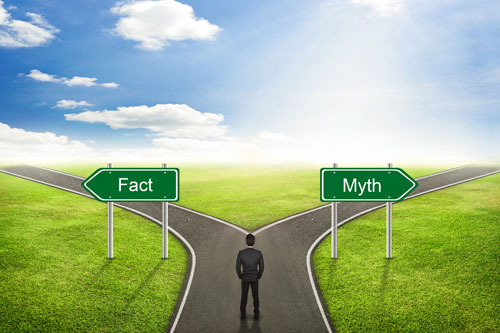Here are some myths regarding customer service that may be stopping your customers from being loyal to you for life.

Ask for a definition of customer service, and you probably will be met with a long pause, followed by a disjointed and vague response.
While most people, including CEOs throughout the world, think they know what customer service is, many of them do not. In my opinion:
Customer service is quality products, convenience, competitive prices, timely responses, reliability, a personal touch, speed, accuracy, and knowledgeable employees. It is doing what you say you will do.
It is operating on the belief that no transaction is complete unless the service your customers receive is great enough to motivate them to return to you.
Companies throughout the world are facing increasing competition, driven in large part by the Internet, which allows customers to compare products, services, and prices 24 hours a day, seven days a week. Meanwhile, social media such as Facebook allows consumers to share their complaints—and their praises—with millions of people throughout the world.
There are several myths regarding customer service that not only are roadblocks to treating your customers in a way that will make them loyal to you for life, but that also will have a negative impact on your bottom line.
Here are four of them:
Myth #1: You can improve customer service by hiring more employees
Like many things in life, quantity doesn’t equal quality. You can add all the employees you want but, if they don’t understand—and practice—the fundamentals of customer service all you have done is add to your payroll. It’s critical that you hire people who enjoy working with people and that you provide them the tools they need to serve your customers.
Myth #2: Pay your employees more, and their performance will improve
Money does not drive performance. Money is not a motivator. Money will not change attitudes and behaviors. So, what will? Recognition. Positive reinforcement and public praise will motivate your employees to do more and to do it better. I believe that recognition is every much a basic human need as food and water. When you fulfill that need, you will improve performance and develop a team of employees who are driven to do their best.
Myth #3: All employees are empowered
Don’t kid yourself; most employees are not empowered to do whatever it takes to satisfy your customers. There are several reasons for this. Employees are afraid they will make a mistake that will result in a severe reprimand or, worse still, being fired. Meanwhile, managers and supervisors are afraid they will lose power and prestige, if they allow their underlings to make empowered decisions.
If you really want to improve customer service, it is imperative that you allow employees to bend and break the rules in order to make your customers happy—and that you reassure them that they will not be punished for doing so. You also must send the message to the rest of management that a major part of their jobs is to encourage empowerment. Doing so will have two results: It will improve customer service, and it will allow management to focus on other tasks.
Myth #4: Everyone understands customer service
They do not. And, if your employees do not understand it, how can you expect them to provide it? It is your responsibility to ensure that all employees can identify the elements of customer service—and then to train them and give them the tools they need to provide it. Conduct customer service training programs at least three times a year to provide employees the skills they need and to keep enthusiasm high. Then coach them, nurture them, and praise them. The time and money you spend in doing so is an investment in your company’s future. The return on that investment, in terms of customer loyalty and increased sales and profits, will drive your business.
About the Author
John Tschohl is an the internationally recognized service strategist and the founder and president of the Service Quality Institute in Minneapolis, Minnesota. Described by USA Today, Time, and Entrepreneur as a “customer service guru,” he has written several books on customer service.




